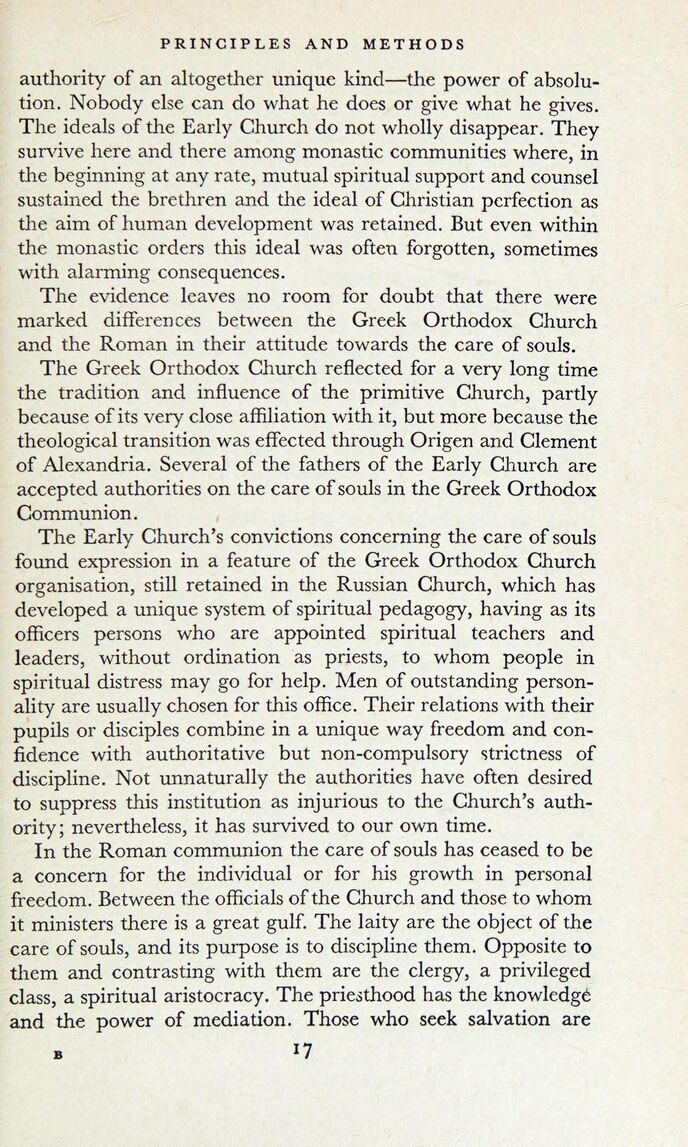
Full resolution (JPEG) - On this page / på denna sida - Part 1. The Responsibilities and Limitations of the Task - 1. Principles and Methods - The Roman Catholic Church

<< prev. page << föreg. sida << >> nästa sida >> next page >>
Below is the raw OCR text
from the above scanned image.
Do you see an error? Proofread the page now!
Här nedan syns maskintolkade texten från faksimilbilden ovan.
Ser du något fel? Korrekturläs sidan nu!
This page has never been proofread. / Denna sida har aldrig korrekturlästs.
PRINCIPLES AND METHODS
authority of an altogether unique kind—the power of
absolution. Nobody else can do what he does or give what he gives.
The ideals of the Early Church do not wholly disappear. They
survive here and there among monastic communities where, in
the beginning at any rate, mutual spiritual support and counsel
sustained the brethren and the ideal of Christian perfection as
the aim of human development was retained. But even within
the monastic orders this ideal was often forgotten, sometimes
with alarming consequences.
The evidence leaves no room for doubt that there were
marked differences between the Greek Orthodox Church
and the Roman in their attitude towards the care of souls.
The Greek Orthodox Church reflected for a very long time
the tradition and influence of the primitive Church, partly
because of its very close affiliation with it, but more because the
theological transition was effected through Origen and Clement
of Alexandria. Several of the fathers of the Early Church are
accepted authorities on the care of souls in the Greek Orthodox
Communion. |
The Early Church’s convictions concerning the care of souls
found expression in a feature of the Greek Orthodox Church
organisation, still retained in the Russian Church, which has
developed a unique system of spiritual pedagogy, having as its
officers persons who are appointed spiritual teachers and
leaders, without ordination as priests, to whom people in
spiritual distress may go for help. Men of outstanding
personality are usually chosen for this office. Their relations with their
pupils or disciples combine in a unique way freedom and
confidence with authoritative but non-compulsory strictness of
discipline. Not unnaturally the authorities have often desired
to suppress this institution as injurious to the Church’s
authority; nevertheless, it has survived to our own time.
In the Roman communion the care of souls has ceased to be
a concern for the individual or for his growth in personal
freedom. Between the officials of the Church and those to whom
it ministers there is a great gulf. The laity are the object of the
care of souls, and its purpose is to discipline them. Opposite to
them and contrasting with them are the clergy, a privileged
class, a spiritual aristocracy. The priesthood has the knowledge
and the power of mediation. Those who seek salvation are
B 17
<< prev. page << föreg. sida << >> nästa sida >> next page >>